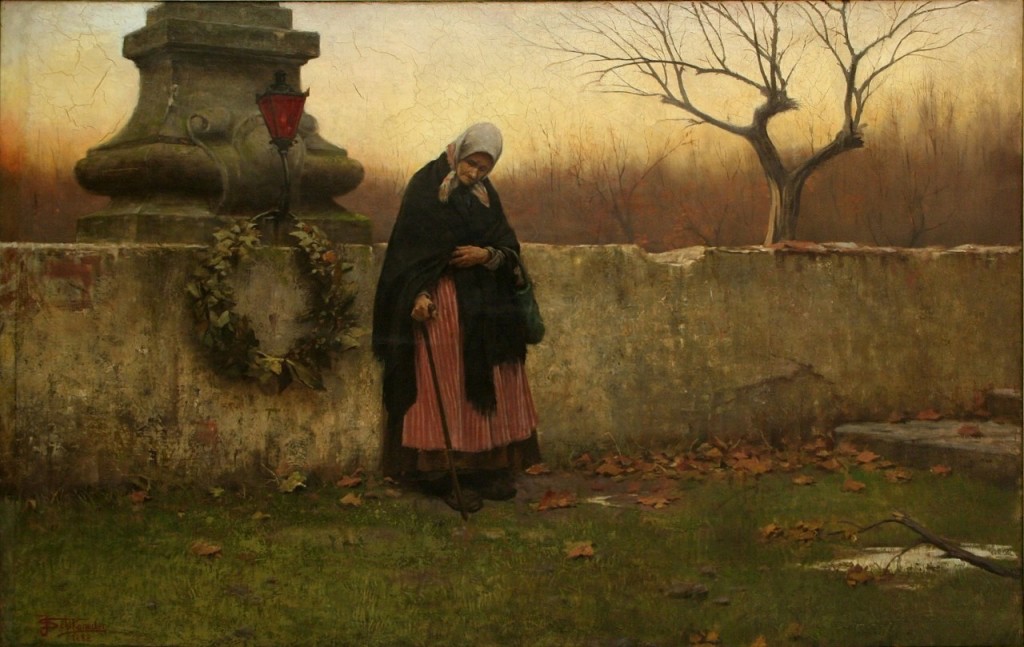Praying for the Dead
November 2, 2016
Sweet is the consolation of the dying man, who, conscious of imperfection, believes that there are others to make intercession for him, when his own time for merit has expired; soothing to the afflicted survivors the thought that they possess powerful means of relieving their friend. In the first moments of grief, this sentiment will often overpower religious prejudice, cast down the unbeliever on his knees beside the remains of his friend and snatch from him an unconscious prayer for rest; it is an impulse of nature which for the moment, aided by the analogies of revealed truth, seizes at once upon this consoling belief. But it is only a flitting and melancholy light, while the Catholic feeling, cheering though with solemn dimness, resembles the unfailing lamp, which the piety of the ancients is said to have hung before the sepulchres of their dead.
— Cardinal Wiseman, Lecture XI; See more on All Souls Day at Fish Eaters
On Italian traditions:
In some areas of Lombardy, the night between November 1st and 2nd people put in their kitchen a vase full of water so that the dead can quench their thirst. While in Friuli they leave a lamp on, a bucket of water and some bread.
Despite the many differences in the local traditions, the belief is one: the dearly departed will come to visit their relatives on this day. The whole country honors the dead by preparing, cleaning and decorating graves during the whole week prior to the Feast. In certain areas of Italy, some habits stand out more than other, which find their roots in tradition, heritage and the undying love for those who no longer live among us.

